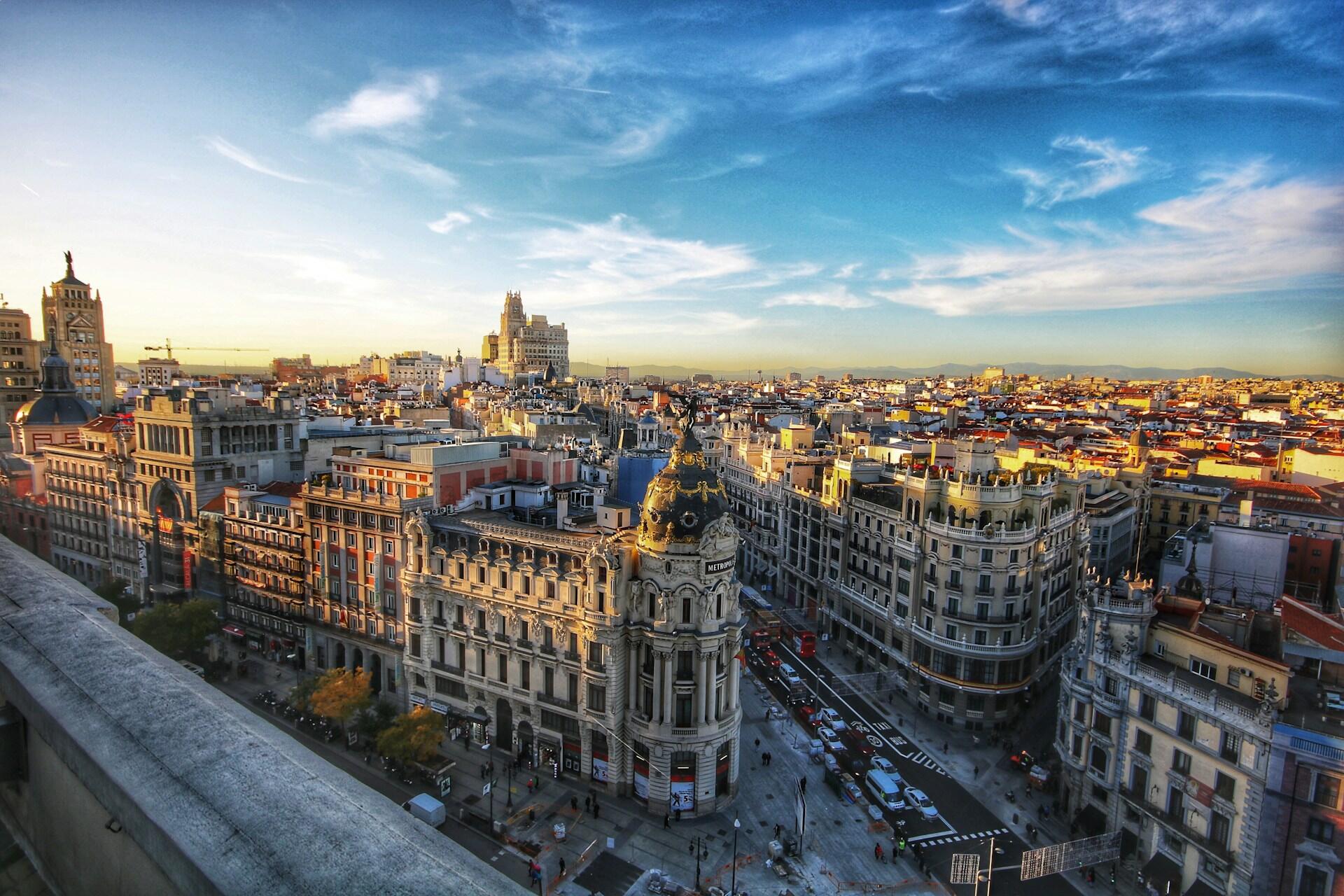Spain has produced world-renowned figures in the worlds of art, sport, film, politics, and science. From iconic painters to sporting legends, the country's influence spans centuries. These renowned Spanish individuals have achieved greatness in their respective fields, shaping Spain's cultural identity and enhancing its international reputation. We've tried to include a varied list here, but which Spaniards would make your list?

Rafael Nadal
Rafael Nadal is a professional tennis player. He's particularly famous for his dominance on clay courts, but he's won basically everywhere. With numerous Grand Slam titles, he has proudly represented Spain in international competitions as well. A beloved figure in sport.
Grand Slam singles titles.
Penélope Cruz
Penélope Cruz is a famous Spanish actress. She has appeared in both classic Spanish TV series and films, as well as Hollywood productions. She was the first Spanish woman to win an Academy Award in 2009. She's an advocate for humanitarian causes in addition to her work on screen.
Here's Penélope Cruz winning her Oscar.
Salvador Dalí
Salvador Dalí was a surrealist artist. Most famous for works like The Persistence of Memory, he revolutionised 20th-century art. In addition to his art, he was well-known for his eccentric personality.
While Castilian Spanish is the official language of Spain, the country is home to several regional tongues. These include Catalan in Catalonia, Galician in Galicia, and Basque in the Basque Country, which is a unique language with no known linguistic relatives in Europe. These languages reflect Spain’s deep cultural and regional diversity.
Pablo Picasso
Pablo Picasso is one of the most influential artists of all time. Famous for pioneering Cubism, his work actually spanned several styles. His giant political piece, Guernica, can be seen in Madrid.
Watch Picasso at work here.
Pedro Almodóvar
Pedro Almodóvar is easily one of Spain's most famous contemporary film directors. His work helped give post-dictatorship Spain a voice through cinema. Many of his works are colourful, emotionally complex, and focus on strong female characters.
for his films, including two Academy Awards and multiple BAFTAs and Goyas.
Andrés Iniesta
For fans of football, Andrés Iniesta is one of the greatest players of all time. His most extraordinary moment came when he scored the winning goal in the 2010 FIFA World Cup final, but his career included many more honours than that. He spent most of his career at FC Barcelona, where he was instrumental in a lot of the club's success.
Watch Iniesta doing what he did best at Barcelona.
Francisco Goya
Another incredibly famous and talented Spanish painter, Francisco Goya, created works that reflected 18th- and 19th-century Spain. He went from royal portraitist to creating haunting, critical images. His influence on modern art is astounding, and Spain's national film awards are named the Goya Awards in his honour.

Carlos Ruiz Zafón
Carlos Ruiz Zafón was a Spanish novelist. His most famous work, The Shadow of the Wind, was a global literary phenomenon, which we'd recommend reading in its native language if you're learning Spanish and have the appropriate level. Many of his stories are set in Barcelona.
bringing modern Spanish literature to a global audience.
Rocío Jurado
Rocío Jurado was a singer famous for dramatic and emotional performances. She sang flamenco, ballads, and pop, becoming a household name in the Spanish-speaking world. Her voice left a mark on Spanish music.
Flamenco is a passionate art form combining singing, dancing, and guitar, originating from the Andalusian region in southern Spain. While it has roots in Romani and Moorish traditions, it's now a celebrated part of Hispanic and Latin cultural identity across the world. Recognised as a UNESCO Intangible Cultural Heritage, flamenco embodies the rhythm and emotion of the country.
Queen Isabella I
Queen Isabella I of Castile was the monarch who helped unify Spain with her marriage to Ferdinand II. She's also famous for financing Christopher Columbus' voyage, which set Spain on a path to colonialism and global expansion. She shaped Spain's imperial history and Catholic identity.
Castile was once a powerful medieval kingdom that played a key role in the unification of Spain. Today, the historical region is divided into Castile and León, as well as Castile-La Mancha. Many of Spain’s most important figures, including Queen Isabella I, were born in Castile, a region that has been a defining part of Spanish history and identity over time.
Antonio Banderas
Antonio Banderas is a famous Spanish actor. He was famous in Spanish cinema before becoming a Hollywood star. A cultural ambassador for Spain, he's most famous outside of Spanish cinema for his appearances in Hollywood productions, such as The Mask of Zorro and Pain and Glory.
Severo Ochoa
Severo Ochoa was a Nobel Prize-winning biochemist. His discoveries helped advance genetic science. He was the first Spaniard to win the Nobel Prize in Physiology or Medicine.
Clara Campoamor
Clara Compoamor was an advocate for women's rights in the early 20th century. She helped secure women's suffrage during Spain's Second Republic. She's remembered as a symbol of democratic progress in the country.
In the early 20th century, female leaders were rare, but Spaniards like Clara Campoamor broke through social norms to fight for women’s rights. Born in Madrid, she played a pivotal role in winning the vote for women during Spain’s Second Republic, a significant milestone for gender equality in the country. Her legacy continues to inspire activists across Spain and beyond.
Dolores Ibárruri
Known as "La Pasionaria", Dolores Ibárruri was an orator and political leader during the Spanish Civil War. Remembered for her rallying cry "¡No pasarán!", which became a symbol of resistance against fascism. She's an icon of political activism and female strength.
Francisco Pizarro
Francisco Pizarro was a conquistador. He led the Spanish conquest of the Inca Empire. A pivotal chapter in the colonisation of the Americas, his legacy is an important and controversial part of Spain's history.
Who is the most famous Spanish person?
Summarise with AI:















